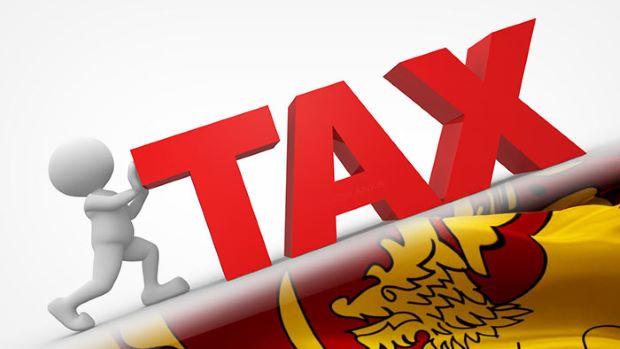By Shihar Aneez
COLOMBO – Sri Lanka’s Inland Revenue Department (IRD) will start a mobile service to reach people to open tax files, State Finance Minister Shehan Semasinghe said, as the island nation strives to boost the number of personal income taxpayers amid a challenging 2024 revenue target committed with the International Monetary Fund (IMF).
President Ranil Wickremesinghe, who is also the country’s finance minister, has aimed to boost tax revenue by 47% in 2024 to 3.82 trillion rupees.
The IMF has urged the government to boost the revenue to sustain its debts after the country plunged into an unprecedented economic crisis and declared bankruptcy with sovereign debt default in April last year,
Wickremesinghe’s government targeted an increase of one million new tax files this year after it urged all above 18 years to open a tax file.
However, only a few thousand opened tax files this year.
In his 2024 budget speech last month, the president said the main reason for not opening tax files is because people believe that there will be unnecessary troubles if they open a new tax file and he admitted it was true, there are unnecessary complexities in tax collection, and taxpayers have to obey the unnecessary influences of some officers.
“We will start the mobile services soon,” State Finance Minister Semasinghe said, acknowledging that the existing system was not user-friendly at all, and they also encountered problems when filing tax returns when the required forms were not available at specific centres.
Many taxpayers have said they need to go from pillar to post when they visit to open a tax file. Though the IRD has an online registration method to open tax files, it is not user-friendly, they claim.
Semasinghe said the government wanted to start the mobile process immediately, but some people were concerned about starting this during the festive season and hence had been advised not to start now.
Sri Lanka is now collecting income tax from everyone who earns more than 10 dollars a day, after the revenue-based fiscal consolidation and the potential output targeting debacles drove the country to external sovereign default, in the wake of serial currency crises and stabilization programs which reduced growth and pushed up debt.
According to data submitted by the IRD to the Parliament, only 31,000 Sri Lankans out of some 500,000 persons registered for income tax pay personal income tax while 328 registered limited companies out of 105,000 contribute to 82% of tax revenue.
The IRD has proposed to impose a fine of 50,000 rupees and 5% of the tax payable on those who maintain tax files without submitting the report by the relevant date.
Admitting the failure to boost tax revenue in recent times, President Wickremesinghe last month proposed to establish a revenue authority to boost tax collection.
The government also has raised indirect taxes including Value Added Tax (VAT) instead of direct taxes to boost the revenue and reach the IMF targets.
-economynext.com



Comments are closed, but trackbacks and pingbacks are open.